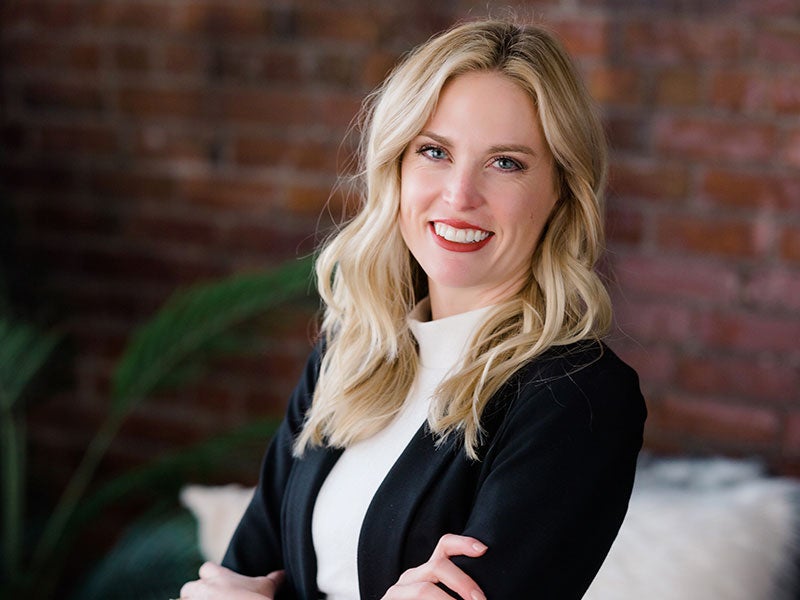Working toward an Equitable Justice System
As a psychology major at Luther, Richelle (Johnson) Mahaffey ’13 became interested in how mental health intersects with legal issues. A professor recommended a book about how American jails and prisons have become de facto mental health systems, where we store people with mental health issues. Mahaffey thought, I want to go to law school and fix this.

At Drake University Law School, a mentor suggested that Mahaffey might flourish as a juvenile defender. “She said juvenile law is really mindful of restorative justice and the resiliency of children and how it’s worth it to invest in kids and families,” Mahaffey says. “It’s viewing the court as an opportunity to course-correct versus the crime-and-punishment approach in adult court.”
It turns out that juvenile law was a fit. Mahaffey’s sensitivity to inequities in the judicial system—particularly in terms of race, class, and/or mental health bearing unfairly on opportunities and outcomes—made her a standout lawyer. After becoming a juvenile public defender in Polk County, Iowa, she was named the American Bar Association’s Fearless Children’s Lawyer of the Month in August 2022, the Drake Recent Alumna of the Year in 2023, and a Georgetown Juvenile Justice Initiative’s 2023 Ambassador for Racial Justice.
As a juvenile public defender working with a client, Mahaffey says, “My guiding principle was just to sit with that kid and listen to them and believe them. Whatever they are telling you about their experience is true for them. And if you believe them, what would your next step be as an attorney within the law?”
Last April, Iowa governor Kim Reynolds appointed Mahaffey as a district associate judge, a position she assumed in May. From the bench, Mahaffey continues to work toward a more equitable judicial system. She asks herself, “Is a child or parent not being given a break where I’ve seen others get cut slack? If I’m looking at services that haven’t been provided to a family or outcomes that are being recommended for abuse—maybe being taken out of the home—and if I think about maybe a corresponding nonminority family, would they be shown that same type of treatment?”
As a judge, Mahaffey also tries to create a compassionate atmosphere. “The judge is really the sole decision-maker in juvenile law—there’s no jury the way there would be in criminal law—and the judge sets the tone in the room,” she says. “If you’ve got a judge who is giving everyone a chance to be heard, is being respectful and courteous, and is telling people the truth about their situation, but in a kind way, it just elevates everyone in the room to be at that level. It’s like they’re the thermostat of the room, the judges. My goal is to set people at respectful, honest, courteous. At mercy, compassion, and empathy. And then not only is that a better experience for everybody involved, but frankly, it’s better outcomes for families.”